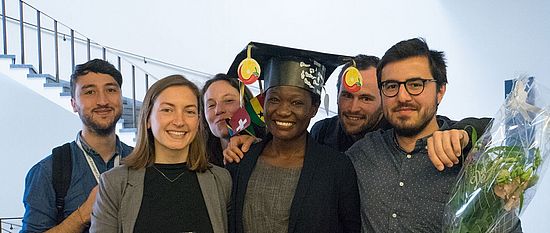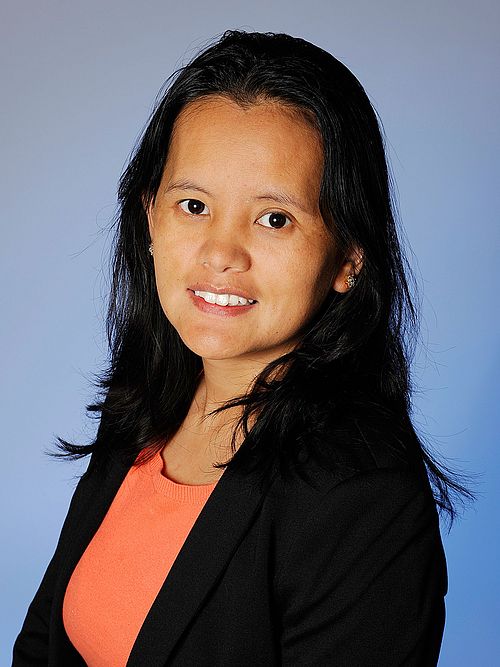
Doctoral Studies at the IBMBPhD Program
In collaboration with the Faculties of Science, Medicine, Theology, Law and the Philosophical-Historical Faculty (see Governance), the IBMB offers an interdisciplinary PhD Program in Bioethics, Policy and Law in Environment and Medicine. The PhD Program incorporates two different doctoral degrees: PhD in Biomedical Ethics is associated with the Faculty of Medicine, and the PhD in Bioethics with the Faculty of Science. The PhD students in Biomedical Ethics (degree offered by the Medical Faculty) are enrolled through the Graduate School Medical and Health Sciences (GSMHS). The doctoral education at the University of Basel is accredited by the Swiss Bologna education system. The reasons for the development of this PhD Program at the University of Basel were threefold:
(1) Address a gap in high level education in biomedical ethics, in collaboration with the only other national PhD program in biomedical ethics at the Faculty of Medicine, University of Zürich.
(2) Add in particular a focus on ethics in the life sciences, responding not only to the national and international need for advanced education in bioethics but also to students’ demand, thereby attracting excellent international candidates.
(3) Establish Switzerland as a site for internationally recognized research in ethical issues related to both medicine and the life sciences.
The establishment of a PhD in Bioethics at the Faculty of Science is novel and unique, as no such cooperation exists in Switzerland. Our program collaborates with various institutions, such as the Swiss Tropical and Public Health Institute, the Faculties of Psychology and Law of the University of Basel and the Felix Platter Hospital. It examines diverse ethical questions related to, for example, public health interventions, clinical trials, healthcare access, caring for older persons, quality of care, and more recently ethics of increasing smart(er) technologies.
The IBMB is led by Prof. Dr. B. Elger, who holds a full-professorship position at the University of Basel in the Faculties of Science and Medicine. Prof. Elger has extensive experience in the supervision of research projects in biomedical ethics and has successfully obtained several research grants from the Swiss National Science Foundation. She is responsible for guiding, supervising, and managing the Institute.
Also responsible for student supervision and research is the PhD coordinator, Prof. Dr. T. Wangmo, who completed her PhD from the University of Kentucky (USA). She is experienced in empirical research methods and her research interests lie within the scope of justice and human rights. Before coming to Basel, she completed a year of post-doctoral work in Kentucky.
In addition, there are currently three senior post-docs and five junior post-docs from different disciplines who contribute towards co-supervising PhD students and help with student’s research projects. At present we have between 1:1 and 1:2 post-doc to PhD student ratio. With additional PhD students expected, we aim to have a balanced and manageable ratio of 1:2.
The supervision takes place in collaboration with colleagues from the Faculties of Science, Medicine, Theology, Law and the Philosophical-Historical Faculty (see Governance).
For the different sections of the PhD program, the relevant faculty PhD regulations of the University of Basel apply, e.g. those of the Faculties of Science and Medicine. The admission requirements for prospective PhD students are explained below.
The PhD program is open to national and international students who have demonstrated academic excellence (minimum grade 5 out of 6) and have a strong interest in bioethics. The students enrolled in the Program have obtained a Master’s degree either in bioethics, law, medicine, science, public health, philosophy or social sciences. Students with prior education in life and natural sciences would be admitted through the Science Faculty, and those with social sciences, bioethics, and philosophy, or law backgrounds will be admitted through the Faculty of Medicine or other Faculties (Theology, Law, Philosophical-Historical Faculty).
The PhD program aims to enrol up to five candidates per admission cycle in order to keep the number of total students stable at around 20. Eligible candidates must possess:
(1) a Master’s degree (MA or MSc) or an equivalent title in Bioethics, Law and Ethics, Public Health, Social Sciences or the Life Sciences
(2) demonstrate academic excellence through outstanding academic grades, presentations at conferences, publications in peer-reviewed journals, and awarded fellowships or scholarships
(3) depict motivation and commitment to their research interests in Bioethics
(4) English language fluency (C1 Level is the absolute minimum)
The Application Process. All applications will be reviewed by the admission committee at the IBMB and the Governance Board and will be accepted via email before the designated deadline. The following documents compose a complete application:
(1) Curriculum Vitae;
(2) Copies of academic degrees;
(3) Statement of purpose and interests;
(4) Two letters of recommendation to be sent directly to the admissions committee (or the provision of names of two referees to be contacted by phone or by email); and
(5) Proof of English proficiency. The admission committee will review all applications and short-listed candidates will be invited for an in-person interview in Basel.
Interview. Invited candidates will be interviewed by the admissions committee and the interview will take place in English. The interview process is designed to help the admissions committee make a better evaluation of applicant’s suitability, motivation, and commitment to completing the doctoral program. In cases where the applicant is unable to travel to Switzerland, the interview will take place via teleconference.
Admission. The decision about acceptance will be based on both the written application and the interview. All applicants will be informed of the committee’s decisions in writing.
The current PhD program consists of coursework and an original research project that leads to at least three first-authored publications in peer reviewed journals. The research work will pertain to the field of bioethics including research ethics, biotechnology, environmental ethics, biobanking, genetics, medical ethics, clinical ethics, ethics of nanoscience, public health ethics, social justice, and/or human rights. PhD candidates must complete core and elective courses equivalent to a minimum of 18 European Credit Transfer System (ECTS) points (1 ECTS = 30 hours of work). Students are however encouraged to take additional coursework based on their specific research and educational needs. IBMB aims to offer an attractive selection of core and elective courses, with the support of local and international experts. The individual course plan is discussed and agreed on between each student and his/her PhD committee during the first year of the program.
Core courses (4 ECTS)
- Empirical research in bioethics
- Contemporary debates in bioethics
Recommended methods and statistics courses (2 – 6 ECTS)
- Applied statistics/biostatistics*
- Advanced research methods in biomedical ethics – specialized courses
Other advanced courses in methods and statistics*
* Students have the opportunity to take these courses through relevant departments at the University.
Elective courses
- Biomedical ethics (3 ECTS)
- Research ethics (2 ECTS)
- Ethics in nursing science (3 ECTS)
- Public health ethics (2 ECTS)
- Environmental ethics (2 ECTS)
- Advanced thematic courses/retreats in biomedical ethics* (2 - 4 ECTS)
* These are student tailored advanced modules organized every year based on the research work conducted by current students and their needs.
The timeline of a PhD degree is as follows:
Year 1: Completion of coursework, Progress report delineating milestones achieved with respect to coursework and PhD research activities, PhD agreement.
Year 2: Complete additional coursework, as needed, Manuscript publication from PhD project. Research progress report, PhD agreement update.
Year 3: Research progress report, PhD agreement update. At least 3 peer-reviewed publications must be completed by the end of the PhD, PhD defense, Submission of PhD Thesis.
The PhD Program sets high standards for supervision. In line with the PhD regulation (Doktoratsordnungen) of the respective faculties at the University of Basel, the Program has fully implemented the following: every student must have a supervising PhD committee, including a main supervisor from the fields of (bio) ethics, health policy or legal medicine. Progress reports must be established and close supervision is provided to ensure high quality and timely process of the PhD theses.
Faculty of Medicine: http://medizin.unibas.ch/lehre/promotionen/phd-dr-sc-med.html
Faculty of Science: http://philnat.unibas.ch/dokumente/promotion-phd/
PhD theses are co-supervised by an interdisciplinary committee of experts. Scholars with expertise in normative ethics will always be included in the committees. Projects with a life science perspective will typically include a scientist from the relevant sub-discipline. The rich scientific environment in the Basel and Zürich (two Universities and the ETH), including science faculties with a range of interested colleagues, facilitates the identification of appropriate expert co-supervisors. The primary supervisor and other committee members work closely with their students by helping them to continuously refine their research projects and encourage their students to publish their study results quickly in peer-reviewed journals with a high IF.
The PhD Program has established a network of national and international colleagues from different disciplines who are interested in the PhD program and available to co-supervise students. These colleagues, represented on the PhD committees, are invited and have been present during student’s final PhD defense. In addition to targeted supervision provided for their PhD research work, students are also provided the opportunity to participate in grant writing and participate in peer-reviewing articles for journals. They are encouraged and supervised to present their findings at several national and international conferences and to network with leading scholars in the field through the many established collaborations of the Institute for Biomedical Ethics (IBMB).
Our PhD program aims to contribute towards shaping a future generation of (bio)ethicists who will be highly efficient and reliable in providing expert advice on the unavoidable and manifold ethical issues that arise with advances in medicine, the life sciences and society. With the advancement of medicine and biotechnology and the continuous challenges they keep posing to society, the field of bioethics continues to evolve and grow. There is increasing demands for bioethics expertise in clinical and research ethics committees, in national ethics committees as well as in various health-related organizations in the public and private sectors. Funding agencies worldwide (e.g. European Commission, Genome Canada, US government funds) routinely require the integration of an ethics component in scientific projects, in order to identify (and, if possible, to prevent or minimize) adverse consequences of biotechnology and to increase the credibility and transparency of biomedical scientific projects. In addition, ethical expertise is becoming a regular requirement for researchers in different scientific areas. Therefore, our graduates can not only opt for an academic career in bioethics, but also contribute their acquired expertise in ethics committees and other ethics related regulatory fields, or even more importantly, in their own scientific or related activities.
Following its high success in obtaining grants, the IBMB has expanded and is moving to a new location in 2013 (from Missionsstrasse 24 and 64 to Bernoullistrasse, directly opposite the University Library and close to the main University lecture halls in the Kollegienhaus). Our resources include individual work stations for each student and post-docs as well as a room to host small networking events and meetings. The IBMB also owns a growing library with books on topics related to Ethics, Biomedical Ethics, Research Methods, Statistics, and Philosophy. The Institute is well integrated into the structure of the University of Basel as a result of being part of two faculties and has built collaborations with several departments and institutes including environmental sciences, public health, psychology, informatics, and law.

Prof. Dr. Tenzin Wangmo
PhD Program Coordinator
Bernoullistrasse 28
4056 Basel
Tel: +41 61 207 17 87
E-Mail: tenzin.wangmo@clutterunibas.ch
